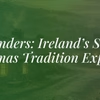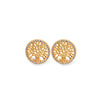The Heroic Legend of Fionn

Fionn’s real name was Deimne, of the Clan of Bascna; his father was Cumhaill (leader of the ancient Fianna – a band of mercenary warriors), his mother was Muirne (daughter of the druid Tadg mac Nuadat). Cumhaill had kidnapped Muirne because her father had refused to permit them to marry. Cumhaill was killed by the sons of Morna, led by Goll Mac Morna. As Muirne was pregnant, her father would not accept her home; because of this and the threat from Cumhaill’s enemies, Muirne had to leave the infant Deimne with Bodhmall the Druidess, and Liath Luacra, the warrior, to be brought up in safety and secret in the forest of Sliabh Bladhma. Bodhmall taught Deimne wisdom and strength, the ways of the Druids. On the other hand, Liath taught Deimne how to hunt and battle in the ways of the warriors.
Deimne left Sliabh Bladhma as his father’s enemies were searching for him and went to find his father’s brother, Crimhall, in Connaught (west of Ireland). On the way, Deimne joined some youths who were swimming, and then they all played hurling, amazed that this stranger could swim faster and further than any of the others and throw better than any, the youths reported to their Chieftain, who didn’t like that a stranger was better than his boys. He ordered the boys to have a wrestling match with Deimne, who won despite being outnumbered. The Chieftain made Deimne his huntsman and named him Fionn because his body was so fair, and from then, he was known as Fionn by all. But the chieftain soon realized that Fionn must be the son of Cumhaill because he was so good at hunting; once he was found out, Fionn thought he might not be safe there anymore and decided to move on.
Then Fionn went to work for the King of Carraighe, but when Fionn kept beating the king at chess, the king soon realized he was Fionn, son of Cumhaill, and he asked him to leave as he could not protect from him Cumhaill’s enemies, the sons of Morna. Fionn decided to continue looking for his Uncle Crimhall.
Fionn met a woman crying because a warrior had killed her son. Fionn fought this warrior to avenge the young man’s life. This was Fionn’s first battle, and it turned out that this warrior was a son of Morna and had been party to the killing of his Father and had Cumhaill’s crane skin treasure bag of magical items and wisdom, and the pack now rightfully belonged to Fionn. Having this magical bag meant Fionn could find his uncle and the last of the old Fianna, who had refused to serve under the sons of Morna. The men were pleased to see Fionn and agreed for him to become their leader.
Salmon of Knowledge
Fionn was able to hunt and fight and play chess, but he didn’t know any poetry or songs of Ireland, so he decided to study under the poet and druid Finnegas; Fionn kept his name Deimne during this time so that nobody would realize who he was.
Finnegans lived by the River Boyne and had spent several years trying to catch the Salmon of Knowledge – it was believed whoever was the first to eat the salmon would gain the world's knowledge – and he eventually saw the salmon of knowledge. He asked Deimne to cook it for him, warning him not to eat the flesh of the fish. During the cooking, a bubble formed on the salmon’s skin; Deimne burst the skin bubble and burnt his thumb; he put his sore thumb into his mouth; this allowed the salmon’s knowledge to be transferred to Deimne. When Deimne brought the Salmon to Finnegans, Finnegas asked if Deimne had eaten of the flesh, Deimne explained about this thumb, and Finnegas knew then that this boy was Fionn and that a prophecy had said this would happen.
Finnegans offered the entire fish to Fionn to eat, which he did, and gained the knowledge of what was known as the nine hazels of wisdom from beside the Well of Wonder, which is found beneath the sea. From then on, when Fionn put his thumb into his mouth, he gained the required knowledge. Fionn became famous throughout Ireland for his knowledge, wisdom, and creative powers.
How Fionn Became Commander of the Fianna
When the time was right, Fionn left Finnegas to become a warrior. He went to the High King, Cormac Mac Art, at Tara, County Meath, and announced he was the son of Cumhail, ready to take his place among the Fianna and serve Cormac. At that time, Goll Mac Morna was the captain of the Fianna; it was Goll and his men who had killed Fionn’s father, Cumhail.
For 23 years, every Samhain (a Gaelic festival to mark the end of the harvest and the beginning of winter), the fairy prince, Aillen Mac Midhna, would lull the men of Tara to sleep with his fairy music and then burn the roof of Tara to the ground with his magic. The Fianna were powerless to prevent it. When Fionn arrived at Tara, he promised Cormac Mac Art that he would get rid of Aillen, and this would prove his right of inheritance to the title of captain. Fionn was armed with a magical spear, and while Aillen played his fairy music, Fionn kept himself awake by sticking the point of his spear into his forehead, and the pain stopped him from falling asleep. Fionn killed Ailleen with the spear; he cut off his head and carried it to Tara so that when dawn broke and the High King and his warriors awoke from the enchanted sleep, they would see that Fionn had killed Aillen. After this, Fionn earned the command of the Fianna, and Goll Mac Morna, who had been captain, agreed to allegiance to Fionn.
Marie Marshall (Scottish poet) wrote the ballad "How Finn McCool Became Lord of Tara":
Fionn loved hunting with his two great hounds, Bran and Sgeolan, who came from the Otherworld. While chasing one day, the hounds cornered a deer but didn't kill it as they recognized the deer as a once-human form since they had once been human. Fionn did not kill the deer who that night transformed into a beautiful woman; she explained her name was Sadhbh and was of the Fairy people from Tír na nÓg and that she was turned into a deer by the druid Fer Doirich because she refused to marry him. Sadhbh and Fionn married and spent all their time together. However, Fionn was called to protect the land from invaders, and he returned victorious, only to discover that Sadhbh had been tricked by Fer Doirich, who had taken the image of Fionn; he turned into a deer again, and they disappeared. Fionn searched for Sadhbh but was never to find her.
Several years later, Fionn was hunting with his two hounds, and they came across a little naked boy who knew no words. Fionn took the boy home and cared for him. He taught the boy to talk and told him he lived in a cave in the hills with a deer. One day a man and the little boy took the deer and could not help; he could not move until the day Fionn and his hounds came upon him. Fionn then realized the boy was his and Sadhbha’s son, and he named him Oisín, which means ‘little deer.’ Oisín was to become one of the greatest of all of the Fianna.
Fionn went again to look for Sadhbh. This time he went to Slieve Gallion in Armagh to meet Cuillen, master of the Faery mound. One of Cuillen's daughters was in love with Fionn and was jealous of Fionn’s love for Sadhbh.
As Fionn traveled to Slieve Gallion, he met a woman crying because she had lost her gold ring in the lake. Fionn searched the lake until he eventually found the ring and swam to the woman to give it to her. The woman just laughed and jumped into the water and disappeared. When Fionn got out of the lake, he started to age immediately and was soon an older man, unable to move. He put his thumb into his mouth, and from his magical wisdom, he could see who had done this to him, but he was too weak to do anything about it. Luckily Fianna had come in search of him, although they did not initially recognize the older man as Fionn.
The Fianna wanted Cuillen to revert his daughter's spell and return Fionn to his normal state. The Fianna started to dig at the side of the Hill where Cuillen lived until Cuillen came out with a golden cup and told Fionn to drink from the cup. Fionn was immediately restored to total health, although his hair stayed grey. Fionn realized that Cuillen would not help him find Sadhbh, so he went home to Oisín, happy at least to have his son.
Fionn’s second wife was Maighneis, and they had a son named Fiachra.
Fionn also had a wife, Oona, who was to help in the story of his fight with the Scottish giant Benandonner.
As an older man, Fionn was to marry Gráinne, daughter of and promised by the High King Cormac mac Airt. However, Gráinne ran away with another member of the Fianna, Diarmuid. Years later, Fionn and Diarmuid were hunting when Diarmuid got injured by a boar. Fionn could have healed Diarmuid, as water that poured through his hands had healing powers, but Fionn didn’t help Diarmuid.
Legend of the Giant’s Causeway
Scientists say that millions of years ago, there were massive volcanic eruptions. After they were over, thousands of hexagonal basalt columns appeared on the coast of County Antrim, Northern Ireland. But legend has it that Fionn built the ‘Giant’s Causeway.’ Fingal's Cave in Scotland is also named after Fionn and has the same sort of columns as found at the Giant’s Causeway.
Fionn is portrayed as a magical benevolent giant, the most significant and muscular giant in Ireland, whose enemy is a Scottish giant named Benandonner. Benandonner wanted to come to Ireland to battle Fionn, but he did not know how to swim, so Fionn built a path across the sea to Scotland so that Benanonner could cross over; this path became known as the ‘Giants Causeway.’ The course was made of thousands of rocks, and when Benandonner heard what Fionn was doing, he started building the path at the Scottish end.
Fionn knew that the giant Benandonner was much bigger than he, and he wanted to fool Benandooner, so he dressed as a baby and laid down in a cradle. Fionn’s wife Oona had baked some griddle cakes, some with griddle irons and some without. When Benandonner arrived, Oona invited him in to wait for Fionn. She offered him a griddle cake (with the irons), and he broke his teeth on the iron. Oona told Benandonner he was weak as she fed the ‘baby’ with a griddle cake (with no irons), who ate it without a problem. Benandonner was amazed by the baby's size and the power of his teeth, and he was afraid of meeting the baby’s father (Fionn) and ran away to Scotland back across the Causeway. As Benandonner fled, he destroyed part of the Causeway so that Fionn could not pursue him, and Fionn scooped up some land to throw at Benandonner. Still, it missed and landed in the Irish Sea, and this became the Isle of Man and Rockall, and the hole he left when he scooped became Lough Neagh.
There is also a similar story in Manx about Fionn and Benandonner battling at Kirk Christ Rushen. The print of Fionn’s feet created the channel between the Calf of Man and Kitterland and between Kitterland and the Isle of Man. At the same time, Benandonner’s feet opened the port at Port Erin. It is said Benandonner injured Fionn, who fled over the sea back to Ireland, and Benandonner pulled out one of his teeth, threw, and hit the fleeing Fionn; this tooth became the Chicken Rock, and because Fionn had cursed the tooth the Chicken Rock became known as a danger to sailors.
Fionn’s Last Battle
When Cormac MacArt died, his son Cairpre became the High King of Ireland. Cairpre did not like the powerful Fianna and decided that Fionn and the Fianna must be destroyed.
When Cairpre’s daughter was getting married, he gave the Fianna the customary bonus of twenty bars of gold. Ferdia, the youngest member of the Fianna, went to collect the prize, but Cairpre ordered Ferdia to be killed and his corpse thrown over the walls of Tara, where the Fianna were waiting for his return. Cairpre said, ‘The Fianna have demanded from the Kings of Tara for too long; this will be their only answer from now on.’ An enraged Fionn called back, ‘Cairpre Mac Cormac, you have just sealed your fate with this action; beware the next time we meet.’
Fionn went to prepare for war. Some of the Fianna wanted to stay loyal to the High King. In the end, Fionn had 3,500 men -- his clan Bascna, those of Leinster under the captaincy of his grandson Oscar and the army of King Feircobh of Munster.
Cairpre had an army of 10,000 men, comprising all the warriors of Tara, 2000 from the clan of Morna, 1000 men each from the tribes of Ulster and Connaught, also 1000 each from the men of the Snows, the men of the Green Swords and the Men of the Green Lion.
The battle took place at Gabhra, west of Tara. It was a ferocious battle, and many men died on each side. Fionn’s grandson Oscar (son of Oisín) slew 100 Green Swords and 100 men of the Lion. Oscar came face to face with Cairpre and threw his spear at him; this was to be the spear that killed Cairpre; as he was dying, Cairpre struck out at Oscar with his final gasp, Oscar to ensure Cairpre was dead, flung a stone at him and then himself fell dead.
Oscar’s dead body was carried to Fionn, who gave a great cry of anguish and raised the Diord Fionn – the roar of the Fianna. Fionn returned to the battle after saying a few words over his grandson’s body. Fionn was an excellent warrior to his enemies, and he killed many dozens, but he was killed that day, which was the end of the might of the Fianna.
Although legend has it that Fionn never died, but is sleeping in a cave beneath Dublin with the rest of the Fianna, waiting for the days, they will awake to defend Ireland in her greatest need and when Fionn’s hunting horn (Dord Fiann) is sounded three times. Others believe Fionn is buried in the crypt of Lund Cathedral, Sweden.
Listen to the song ‘The Legend of Finn MacCumhail’ by the Boston-based band Dropkick M...:





